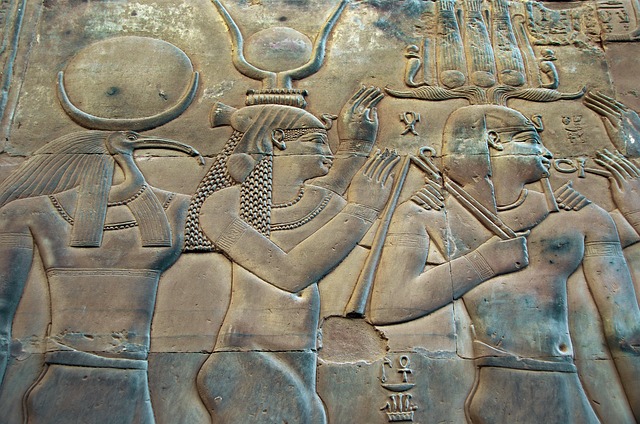In the intricate tapestry of ancient Egyptian religion, the deity Thoth occupies a central place as the patron of knowledge, writing, and the cosmic order. Scholars and pilgrims alike revered him for the way he bridged the earthly and the divine, using his wisdom to guide kings, scribes, and mortals alike. Though often rendered in the shape of an ibis or a baboon, Thoth’s essence transcended simple iconography, embodying the intellectual and moral foundations that sustained Egyptian civilization for millennia.
Iconography and Symbolism
Thoth’s visual representation evolved over time, yet consistently featured elements that signified his role as a scholar and mediator. The most common depiction shows him as a human wearing a headdress shaped like an ibis’s head, or as the ibis itself, the sacred bird associated with the Nile’s fertility. In later periods, a baboon form emerged, reflecting the animal’s nocturnal habits and its symbolic connection to the moon.
- Ibis Headdress – Symbolizes writing and knowledge.
- Baboon Form – Represents lunar cycles and the night sky.
- Oasis Palette – Indicates his function as the scribe of the gods, recording judgments and events.
Mythological Foundations
Within the grand narratives of Egyptian cosmology, Thoth frequently appears as a mediator. One of the most celebrated stories involves the cosmic battle between Osiris and Set. After the murder of Osiris, Thoth’s counsel helped to bring balance, allowing the fallen king’s soul to survive and ultimately be resurrected. This tale underscores Thoth’s responsibility for maintaining Ma’at, the principle of truth, order, and justice.
“Thoth, whose wisdom is as ancient as the stars, records the deeds of the gods and the mortals alike, so that the balance of the universe may never falter.”
Roles in Daily Life and Royal Governance
The influence of Thoth permeated not only religious rites but also practical aspects of Egyptian society. His name appears in the titles of scribes, educators, and even priests, affirming his authority over the intellectual sphere. Kings invoked his blessing before embarking on major projects, such as temple construction, legal decrees, or military campaigns, trusting that his guidance would ensure success and harmony.
- Education and Literacy – Scribes were trained in the art of hieroglyphic writing under the auspices of Thoth.
- Judicial Decision-Making – Courts consulted his symbolic presence when rendering judgments.
- Architectural Design – Architects sought his counsel to align structures with cosmic principles.
Ritual Practices and Temples
Temples dedicated to Thoth, most notably in Hermopolis, served as centers for learning and divination. Initiates underwent rigorous training, mastering the alphabet, mathematics, and astronomy before they could perform the complex rituals that maintained cosmic order. Offerings to Thoth ranged from grain and incense to more elaborate gifts such as silver vessels inscribed with sacred texts, all intended to nourish his divine intellect.
Thoth’s Influence on Science and Culture
The legacy of Thoth extends beyond the borders of ancient Egypt, influencing later cultures and even modern scholarship. His association with writing gave rise to the term “scribe,” while his lunar symbolism influenced the development of the calendar. Scholars today study his mythos to understand how the Egyptians viewed knowledge as a divine gift, a theme that resonates across time.
- Mathematics – Egyptian architects used Thoth’s guidance to calculate the dimensions of pyramids.
- Astronomy – Thoth’s lunar associations guided the construction of observatories and the timing of agricultural cycles.
- Philosophy – The concept of Ma’at, intertwined with Thoth’s teachings, laid groundwork for later ethical systems.
Legacy in Modern Thought
While the direct worship of Thoth waned with the rise of monotheistic religions, his influence persisted in intellectual circles. The notion that knowledge is a sacred duty echoes in contemporary academic institutions. Many universities, especially those in the Middle East, honor the spirit of Thoth by fostering environments where critical thinking and learning thrive.
Conclusion
Thoth’s enduring presence in Egyptian religion underscores the ancient civilization’s reverence for intellect, order, and the written word. From the scribe’s stylus to the ruler’s decree, his fingerprints can be traced through the corridors of history. As we continue to explore the complexities of early human thought, Thoth stands as a reminder that wisdom is both a divine inheritance and a human responsibility. By honoring the legacy of this ancient deity, modern society can find inspiration to pursue knowledge with humility and respect for the cosmic balance he once safeguarded.




